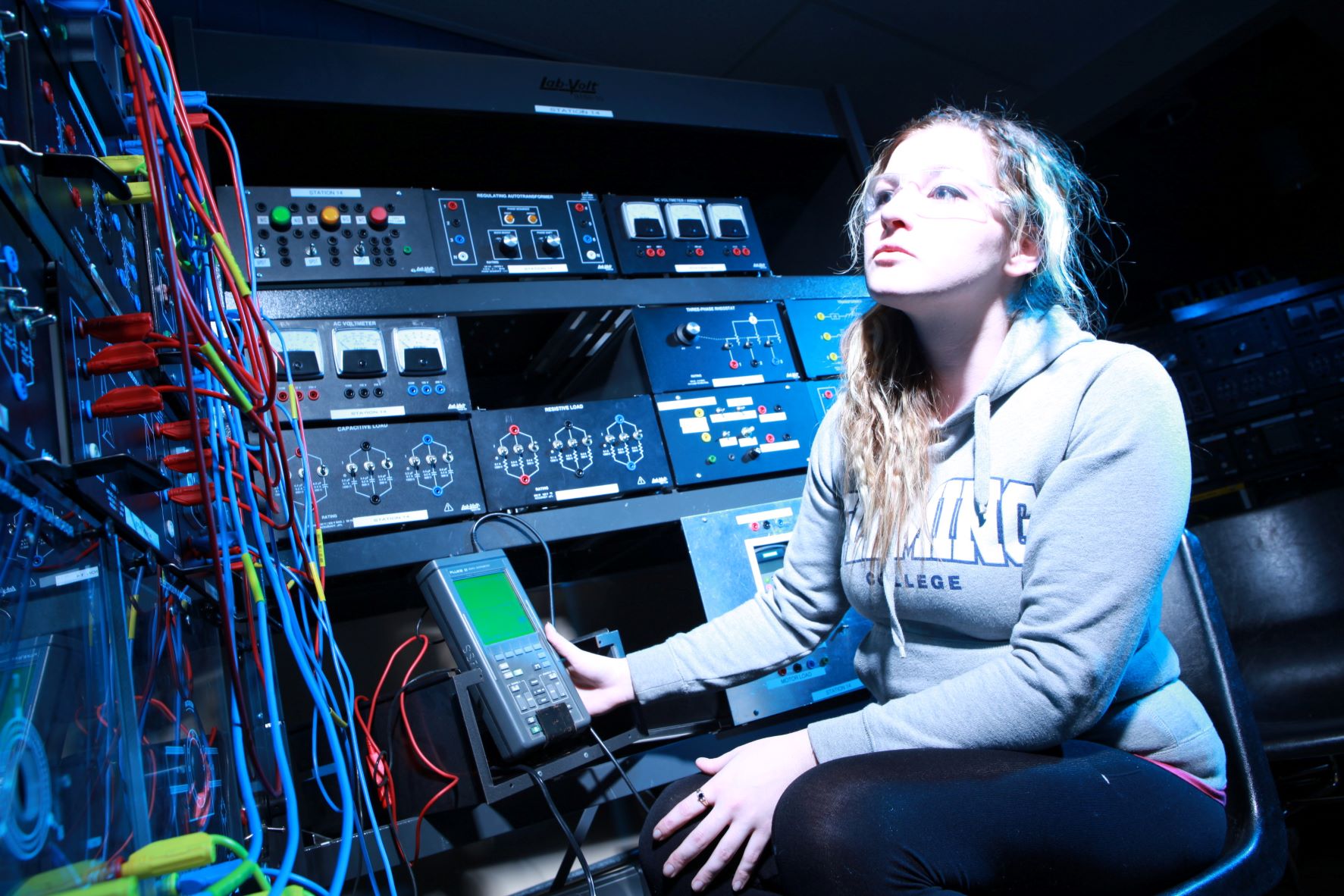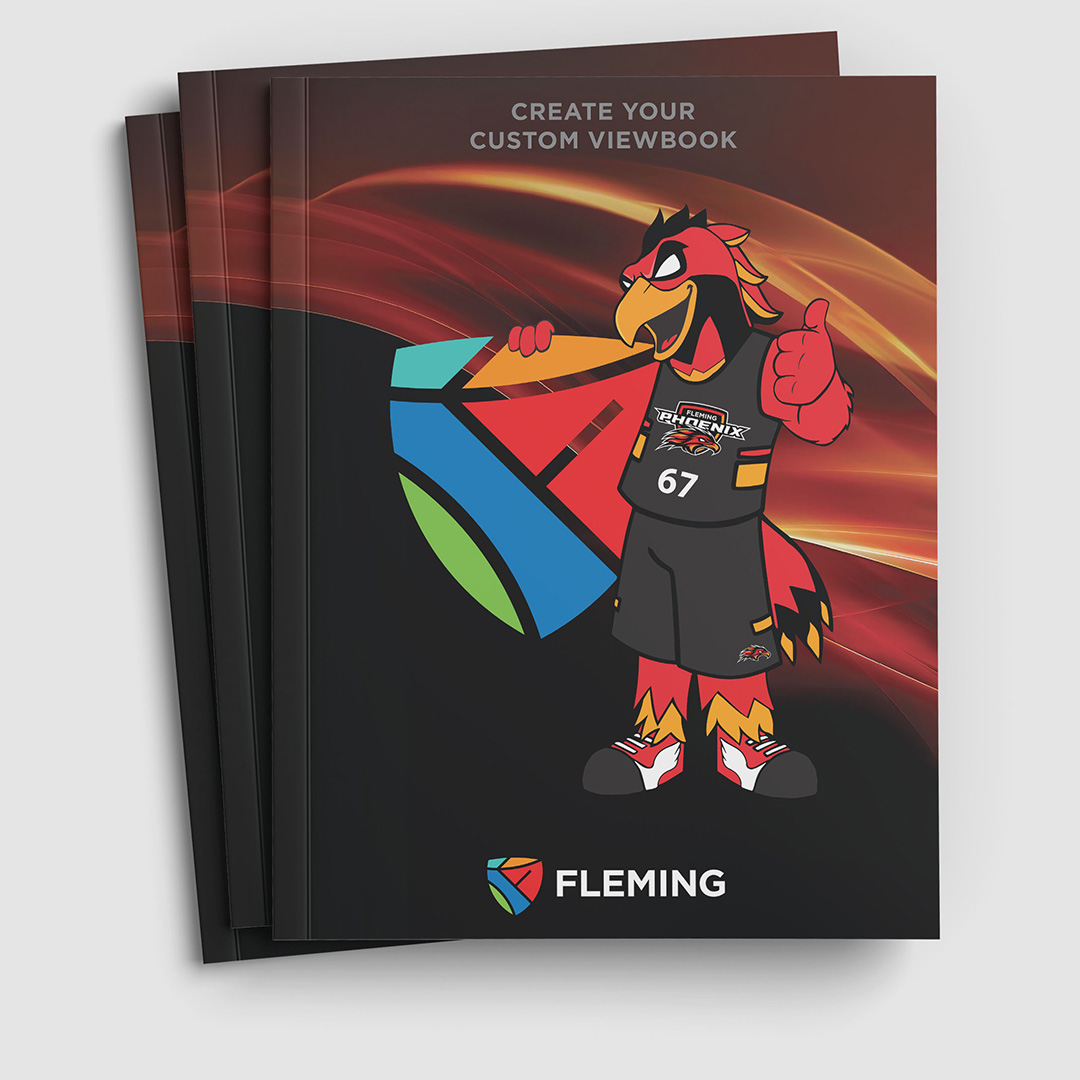Electrical Engineering Technician
This program will equip you with electrical and electronic theory and practice - the tools you need to take on entry level positions or an apprenticeship in the electrical industry.
Program Information
Start Date
September 02, 2025
Apply Now
Canadian StudentsView Curriculum
January 05, 2026
Domestic Availability
Accepting Applications
International Availability
Closed
CIP Code
15.0303
Program Code
EE
Delivery
In Person
Credential
Ontario College Diploma
Academic School
Location
Program Contact
Domestic Tuition
$3001.69 per semester*
International Tuition
$9695.74 per semester*
*Domestic tuition amounts shown are from the 2025-2026 academic year and are subject to change.
*International tuition amounts shown are from the 2025-2026 academic year and are subject to change.
Apply Now
Canadian StudentsView Curriculum
September 08, 2026
Domestic Availability
Coming Soon
International Availability
Coming Soon
CIP Code
15.0303
Program Code
EE
Delivery
In Person
Credential
Ontario College Diploma
Academic School
Location
Program Contact
Domestic Tuition
$3001.69 per semester*
International Tuition
$9695.74 per semester*
*Domestic tuition amounts shown are from the 2025-2026 academic year and are subject to change.
*International tuition amounts shown are from the 2025-2026 academic year and are subject to change.
Apply Now
Canadian StudentsView Curriculum
January 11, 2027
Domestic Availability
Coming Soon
International Availability
Coming Soon
CIP Code
15.0303
Program Code
EE
Delivery
In Person
Credential
Ontario College Diploma
Academic School
Location
Program Contact
Domestic Tuition
$3001.69 per semester*
International Tuition
$9695.74 per semester*
*Domestic tuition amounts shown are from the 2025-2026 academic year and are subject to change.
*International tuition amounts shown are from the 2025-2026 academic year and are subject to change.
Apply Now
Canadian StudentsView Curriculum
Within our Electrical Engineering Technician program you will learn about programmable logic controls (PLCs), electrical and electronic circuits and systems, instrumentation, cabling, network engineering, and electrical machines and controls. Extensive practice labs will provide you with ample opportunity to develop skills required to assume entry level positions or an electrical apprenticeship.
A technical skills shortage is looming both regionally and nationally in Canada. This program has been designed to help fill these technical positions as the manufacturing sector becomes more specialized, the construction industry grows, and retirement rates increase.
These abilities and skills will help you succeed:
- an interest in skilled trades and technology
- enjoyment of problem-solving and troubleshooting
- manual dexterity
- knowledge of mathematical concepts in order to conduct the calculations necessary (assistance for those not yet proficient with Math has been factored into the program curriculum).
Electrical Engineering Technicians are required to:
- develop and test power equipment and systems
- troubleshoot industrial process control systems
- set up micro-electronic systems and circuits
- install and commission electrical and electronic equipment and systems
- analyze the performance of electrical and electronic components
A broad spectrum of career opportunities exists within the electrical industry. Graduates can be employed by electrical utility and power companies, industrial plants, communications companies, and manufacturers of electrical equipment. Consulting firms, construction sites, mining, and transportation industries all hire technicians to design and maintain electrical and electronic systems for use in residential, commercial, institutional, and industrial installations.
Graduates of this program may also choose to apply for an apprenticeship, write the Basic Exemption Test for Electrical Apprentice, and receive credit for some of the in-school portions of the apprenticeship program. Following graduation, you could seek employment as an industrial, maintenance, or construction electrician apprentice.
- Interpret and produce electrical and electronics drawings including other related documents and graphics.
- Analyze and solve routine technical problems related to electrical systems by applying mathematics and science principles.
- Use, verify, and maintain instrumentation equipment and systems.
- Assemble, test, modify and maintain electrical circuits and equipment to fulfil requirements and specifications under the supervision of a qualified person.
- Install and troubleshoot static and rotating electrical machines and associated control systems under the supervision of a qualified person.
- Verify acceptable functionality and apply troubleshooting techniques for electrical and electronic circuits, components, equipment, and systems under the supervision of a qualified person.
- Analyze, assemble and troubleshoot control systems under the supervision of a qualified person.
- Use computer skills and tools to solve routine electrical related problems.
- Assist in creating and conducting quality assurance procedures under the supervision of a qualified person.
- Prepare and maintain records and documentation systems.
- Install, test and troubleshoot telecommunication systems under the supervision of a qualified person.
- Apply health and safety standards and best practices to workplaces.
- Perform tasks in accordance with relevant legislation, policies, procedures, standards, regulations, and ethical principles.
- Configure installation and apply electrical cabling requirements and system grounding and bonding requirements for a variety of applications under the supervision of a qualified person.
- Assist in commissioning, testing and troubleshooting electrical power systems under the supervision of a qualified person.
- Select electrical equipment, systems and components to fulfil the requirements and specifications under the supervision of a qualified person.
- Apply project management principles to assist in the implementation of projects.
Students applying to Electrical Engineering Technician must meet the following requirements:
- OSSD including Grade 12 (C) English and Grade 12 (C) Math.
A minimum final grade of 60 % in Grade 12 C Math is required.
Recommended (but not required for admission)
- High school level Physics course is recommended
PC / Windows
- Operating System:Windows 10
- Processor:Core i5 - 1.6Ghz minimum
- Memory:8GB minimum
- Hard Disk:160GB minimum
Internet Connection: 2.5 Mbps Download and 3.0 Mbps Upload (minimum)
Transfer Agreements
You may be able to use credits obtained at Fleming College to continue your postsecondary education in pursuit of a degree. The articulation and credit transfer agreements with our partner institutions are summarized here.
Bachelor of Automation and Robotics
Requirement
- Minimum 70% cumulative program average.
- Completion of the Algonquin College Bridge.
Transfer Credit
- 13 out of a 49-course degree.
- Refer to ONTransfer.ca for further details.
To apply please see the Ontario Colleges website.
For more information
Visit the Algonquin College website for further articulation and program information.
Visit the ONTransfer.ca website for agreement information.
Bachelor of Commerce
Requirement
- Completion of the program.
Transfer Credit
- 30 out of a 120-credit degree.
- Refer to the articulation statement for further details.
To apply please see the Apply Alberta website.
For more information
Visit the Athabasca University website for further articulation and program information.
See the official articulation agreement.
Bachelor of Commerce in Accounting
Requirement
- Completion of the program.
Transfer Credit
- 30 out of a 120-credit degree.
- Refer to the articulation statement for further details.
To apply please see the Apply Alberta website.
For more information
Visit the Athabasca University website for further articulation and program information.
See the official articulation agreement.
Bachelor of Commerce in Business Technology Management
Requirement
- Completion of the program.
Transfer Credit
- 30 out of a 120-credit degree.
- Refer to the articulation statement for further details.
To apply please see the Apply Alberta website.
For more information
Visit the Athabasca University website for further articulation and program information.
See the official articulation agreement.
Bachelor of Commerce in Finance
Requirement
- Completion of the program.
Transfer Credit
- 30 out of a 120-credit degree.
- Refer to the articulation statement for further details.
To apply please see the Apply Alberta website.
For more information
Visit the Athabasca University website for further articulation and program information.
See the official articulation agreement.
Bachelor of Commerce in Human Resources Management
Requirement
- Completion of the program.
Transfer Credit
- 30 out of a 120-credit degree.
- Refer to the articulation statement for further details.
To apply please see the Apply Alberta website.
For more information
Visit the Athabasca University website for further articulation and program information.
See the official articulation agreement.
Bachelor of Commerce in Indigenous Business
Requirement
- Completion of the program.
Transfer Credit
- 30 out of a 120-credit degree.
- Refer to the articulation statement for further details.
To apply please see the Apply Alberta website.
For more information
Visit the Athabasca University website for further articulation and program information.
See the official articulation agreement.
Bachelor of Commerce in Marketing
Requirement
- Completion of the program.
Transfer Credit
- 30 out of a 120-credit degree.
- Refer to the articulation statement for further details.
To apply please see the Apply Alberta website.
For more information
Visit the Athabasca University website for further articulation and program information.
See the official articulation agreement.
Bachelor of Human Resources and Labour Relations (General)
Requirement
- Completion of the program.
Transfer Credit
- 30 out of a 90-credit degree.
- Refer to the articulation statement for further details.
To apply please see the Apply Alberta website.
For more information
Visit the Athabasca University website for further articulation and program information.
See the official articulation agreement.
Bachelor of Management (General)
Requirement
- Completion of the program.
Transfer Credit
- 30 out of a 90-credit degree.
- Refer to the articulation statement for further details.
To apply please see the Apply Alberta website.
For more information
Visit the Athabasca University website for further articulation and program information.
See the official articulation agreement.
Bachelor of Arts in Educational Studies and Digital Technology
Requirement
- Minimum mid-70% cumulative program average.
Transfer Credit
- 60 out of a 120-credit degree.
- Refer to ONTransfer.ca for further details.
To apply please see the Ontario Universities' Application Centre (OUAC) website.
For more information
Visit the Ontario Tech University website for further articulation and program information.
Visit the ONTransfer.ca website for agreement information.
Bachelor of Arts in Psychology
Requirement
- Minimum mid-70% cumulative program average.
Transfer Credit
- 60 out of a 120-credit degree.
- Refer to Ontario Tech's website for further details.
To apply please see the Ontario Universities' Application Centre (OUAC) website.
For more information
Visit the Ontario Tech University website for further articulation and program information.
Bachelor of Commerce
Requirement
- Minimum mid-70% cumulative program average.
- Completion of the Ontario Tech Commerce Bridge.
Transfer Credit
- 45 out of a 120-credit degree.
- Refer to ONTransfer.ca for further details.
To apply please see the Ontario Universities' Application Centre (OUAC) website.
For more information
Visit the Ontario Tech University website for further articulation and program information.
Visit the ONTransfer.ca website for agreement information.
Bachelor of Interdisciplinary Studies
Requirement
- Minimum 65% cumulative program average.
Transfer Credit
- Entry into 5th semester standing in an 8-semester program.
- Refer to Seneca College's website for further details.
To apply please see the Ontario Colleges website.
For more information
Visit the Seneca College website for further articulation and program information.
Visit the ONTransfer.ca website for agreement information.
See the official articulation agreement.
Bachelor of Engineering (Ordinary) in Electrical Engineering
Requirement
- Minimum 60% cumulative program average.
Transfer Credit
- Entry into 3rd-year studies of a 3-year program.
- Refer to the articulation agreement for further details.
- A candidate wishing to become a professional engineer (P.Eng.) in Ontario must contact the Professional Engineers Ontario (PEO) before enrolling in the above program to verify the credential will be recognized.
To apply please see the Technological University of the Shannon: Midwest's international website.
For more information
Visit the Technological University of the Shannon: Midlands Midwest website for further articulation and program information.
See the official articulation agreement.


